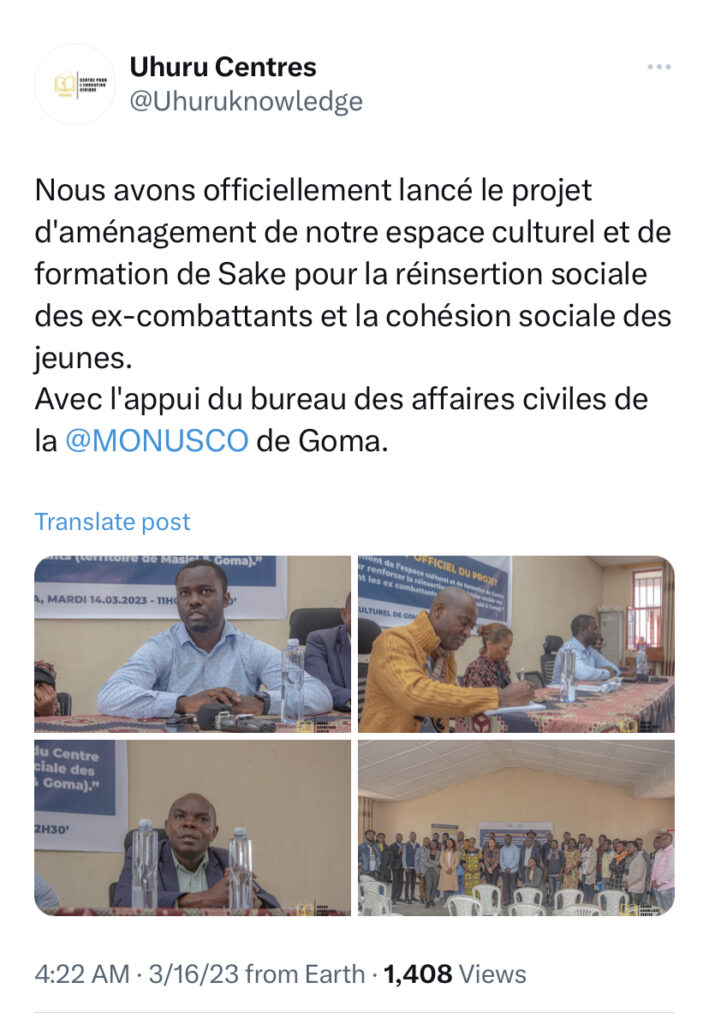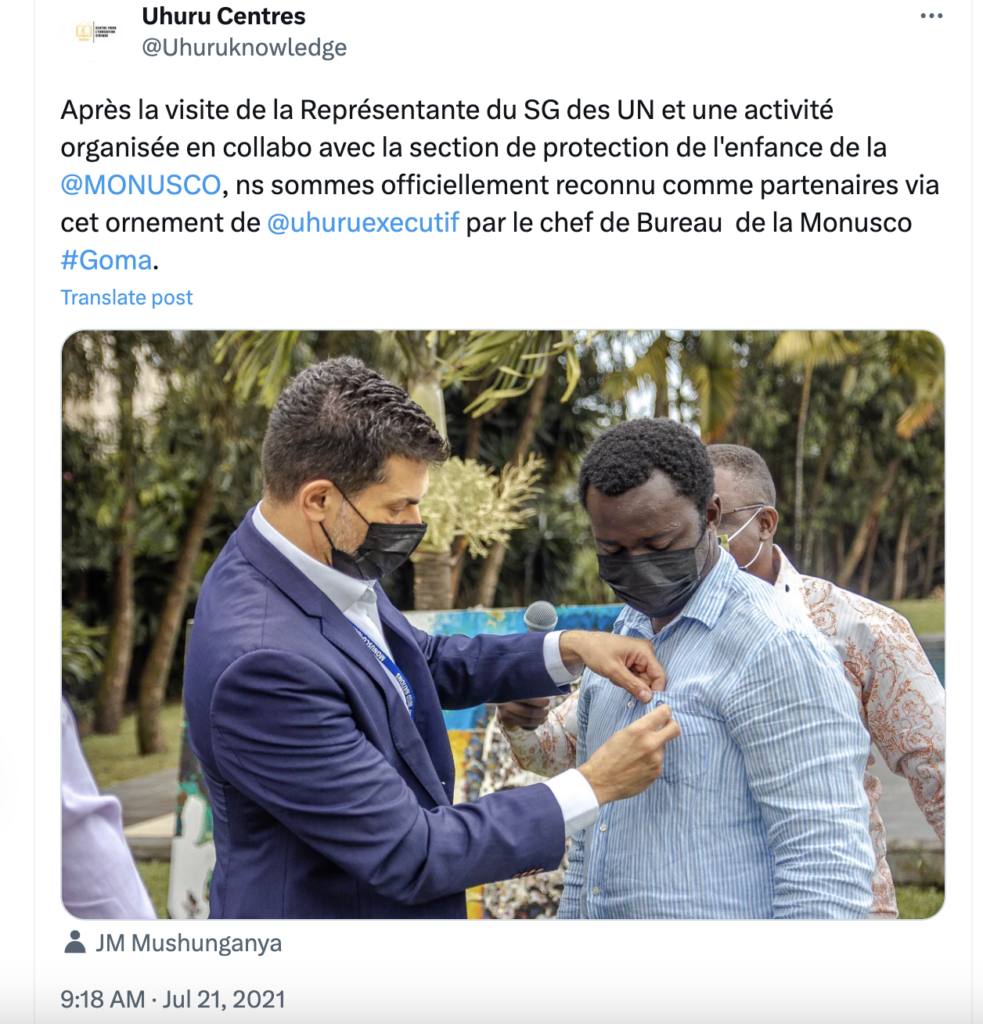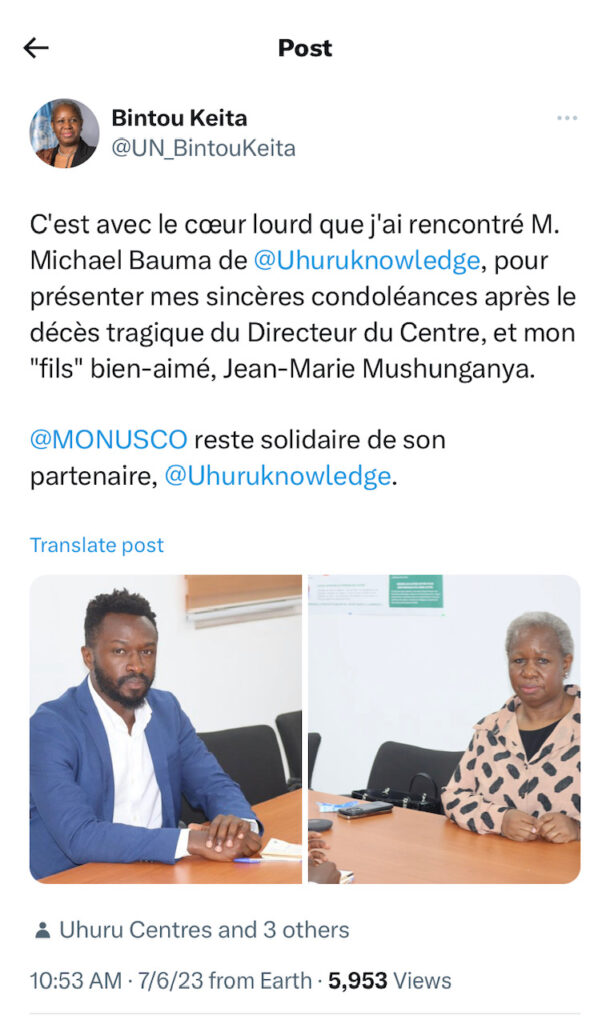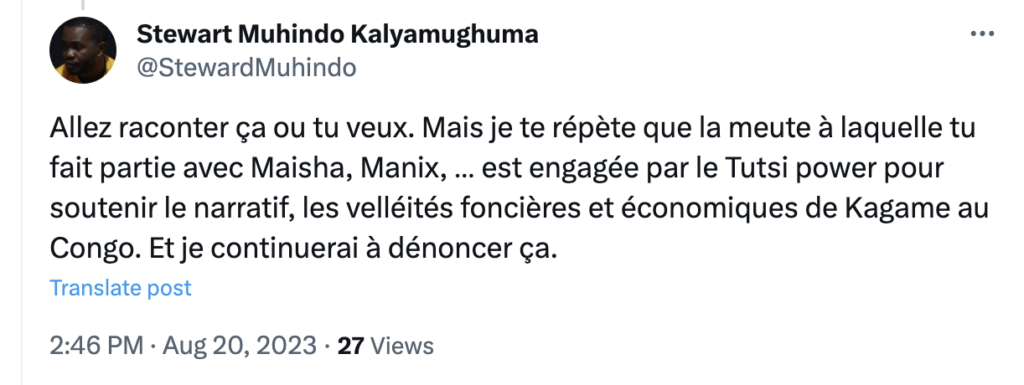27 September, 2023
The costly and ineffective presence of MONUSCO – the United Nations Organization Stabilization Mission in the Democratic Republic of Congo – in existence for over two decades, and led by Bintou Keita, has raised questions of inefficacy and provoked violent protests in July 2022, which led to the death of three peacekeepers and over twenty Congolese civilians. This tragic event coincides with increasingly frequent discussions in the United Nations about MONUSCO’s departure, solicited by DRC. As a means to delay the process, and to continue profiting from its humanitarian presence, MONUSCO, after the July violent attacks, increased its partnership with instigators of hate speech, namely satellite organizations of the civil society movement LUCHA, in exchange of their silence about MONUSCO’s lack of result.


MONUSCO’s partner, the Uhuru Knowledge Centers, is presided and managed by members of LUCHA particularly Michael Kalamo Bauma, brother of Fred Bauma, who leads LUCHA. Bintou Keita works closely with the Uhuru Knowldge Centers and entertains a close relationship with its members.

This is despite ample evidence that LUCHA, known for its xenophobic anti-Rwandohone rhetoric, has planned and organized the deadly protests against MONUSCO in July 2022. Other prominent LUCHA members such as Serge Sivya are active with the Uhuru Knowledge Centers.

“the Great Lakes’ Hitler”

In the past year, MONUSCO’s mandate renewal resolution, Group of Experts reports, and UNJHRO reports, have all shown the failure and lack of initiative by the Congolese government to address the proliferation of violence and human rights violations by the Congolese army (FARDC) and the police (PNC), as well as by the deadliest armed groups operating in DRC, namely FDLR, ADF, and CODECO. The support of FARDC to the negative forces particularly the FDLR, created by the force responsible for the 1994 Genocide against the Tutsi in Rwanda, and to the so-called “self-defense groups” (Wazalendo), whose existence has been made official through a decree, as widely reported in the news and several UN reports. The DRC government has in addition illegally hired private paramilitary companies with several thousand European mercenaries and military equipment in operation in eastern DRC, since mid 2022.
Despite clear evidence of the peacekeeping mission’s failure, confirmed primarily by the proliferation of armed groups (over 266 today, compared to less than 20 when MONUC was created), in addition to the refusal of the Congolese authorities to follow the peace roadmap established within the regional mediation processes, MONUSCO’s conclusions, statements, and communications all point the finger at Rwanda accusing it of being the principal instigator of the crisis, through its alleged support to M23. Although it has been widely recognized that the M23 is far less deadly and violent than the national army FARDC, and the coalition of armed groups, the M23 has been characterized as the primary driver of conflict in DRC. This persistent digression, which consists in accusing M23 of the entirety of the sociopolitical and economic issues faced by DRC, while M23 is erroneously described as a foreign armed group, and systematically equated to Rwanda, delays peace in the region. The tactic of deviation from the root causes of the crisis also puts the United Nations in a position of complicity with the lingering colonial racist ideology, which has plagued the region since the 19th century.
This section focuses on the consequences of LUCHA’s anti-Rwanda and anti-MONUSCO campaign which led to episodes of public incitement to violence leading to the death of UN peacekeepers in July 2022, an exacerbation of hate speech, and a proliferation of violent attacks targeting Congolese Tutsi in eastern DRC.